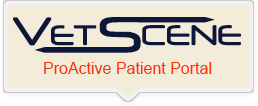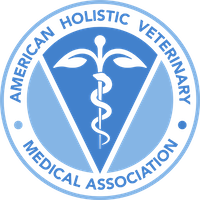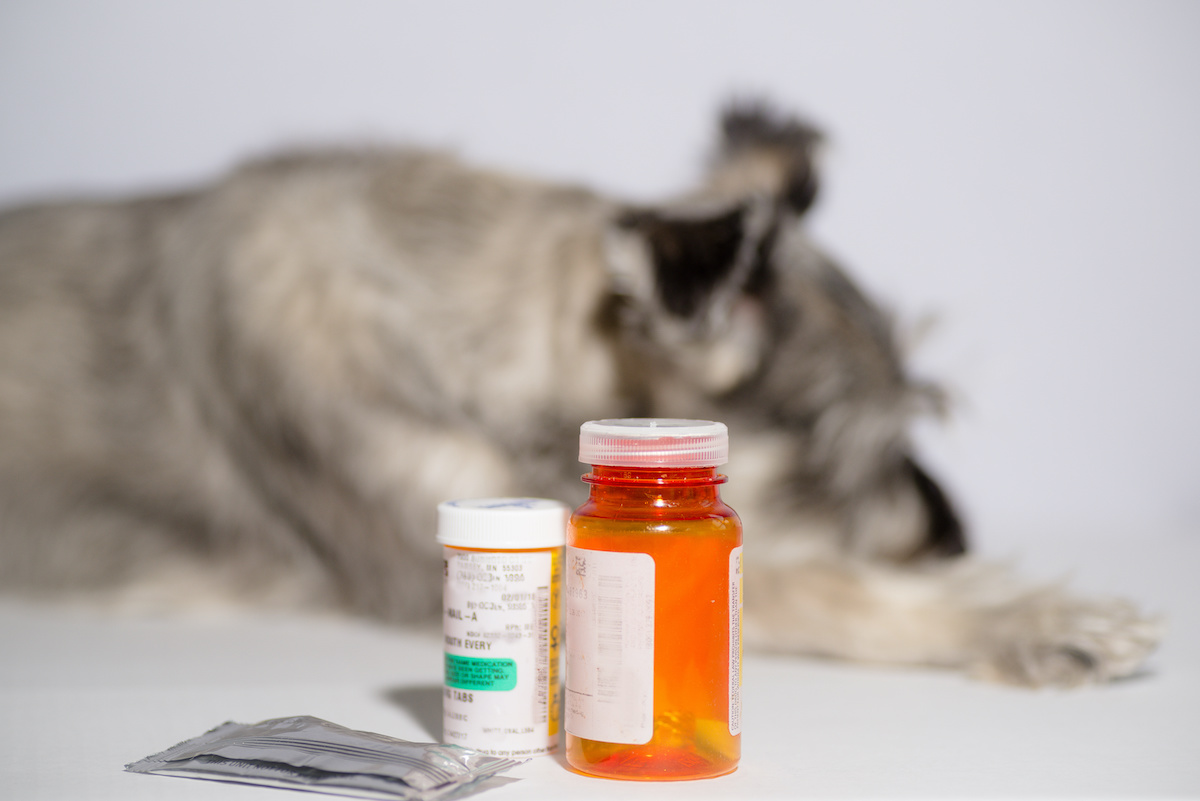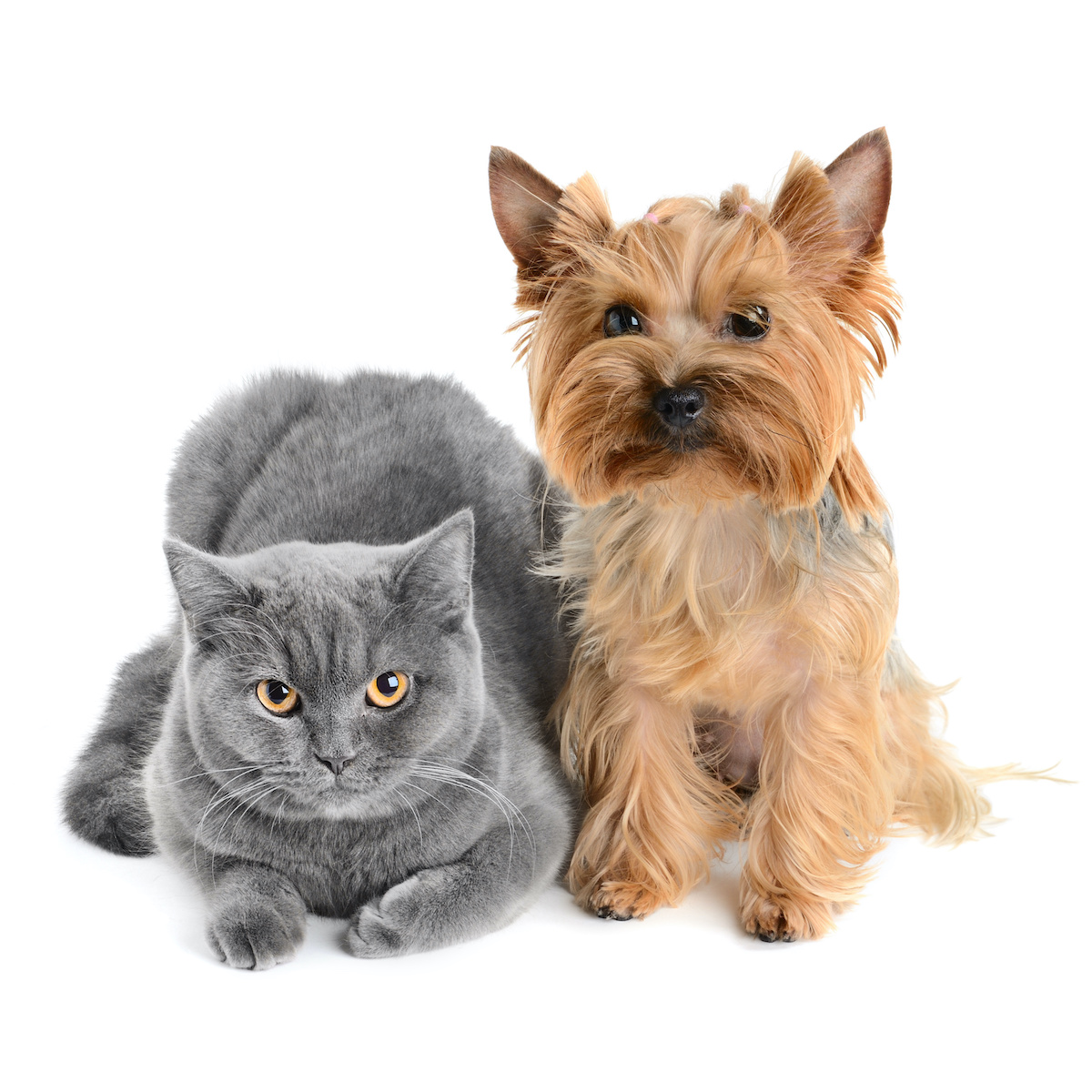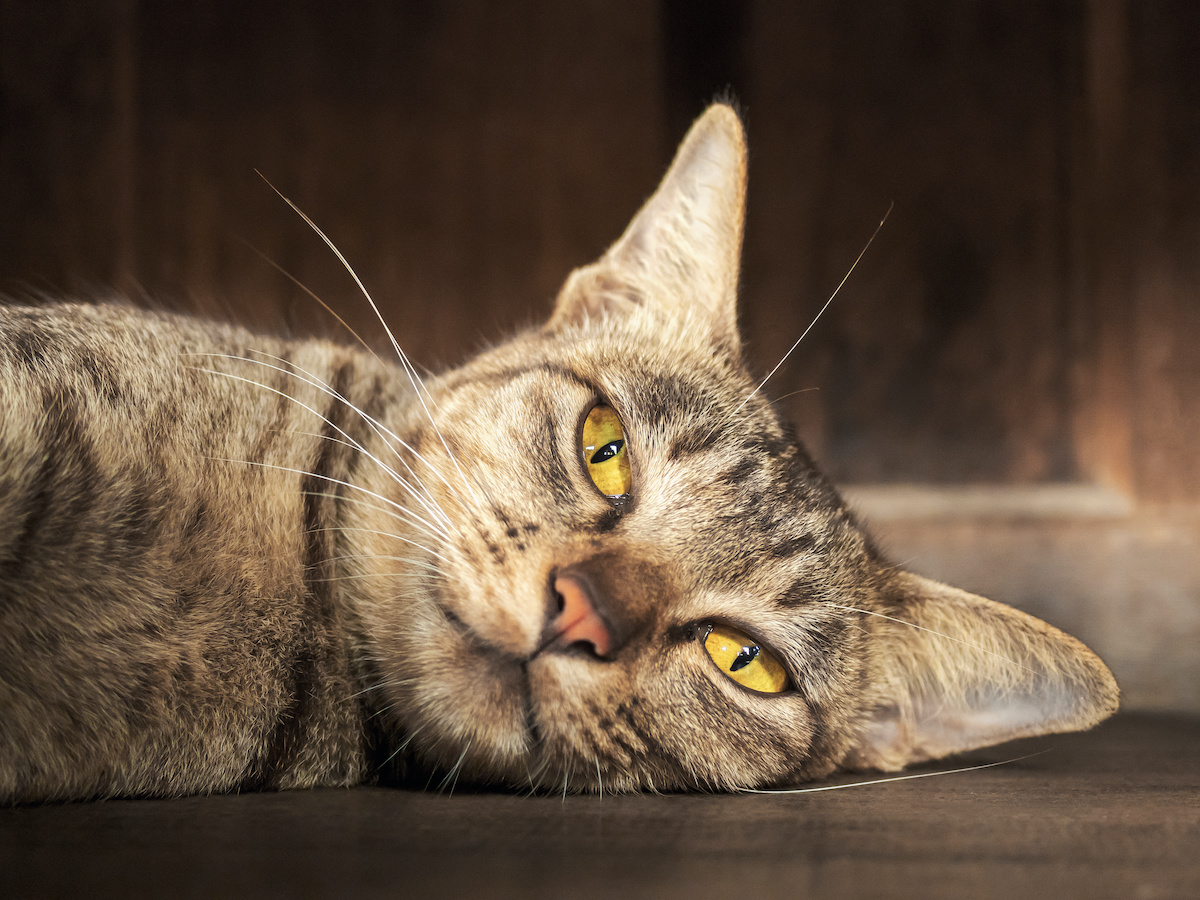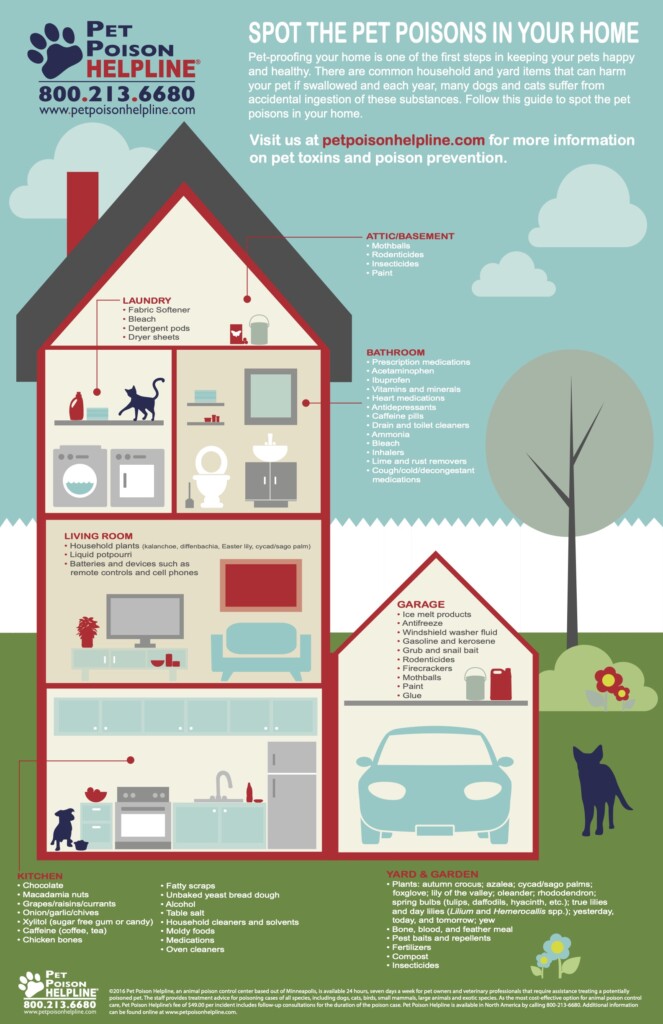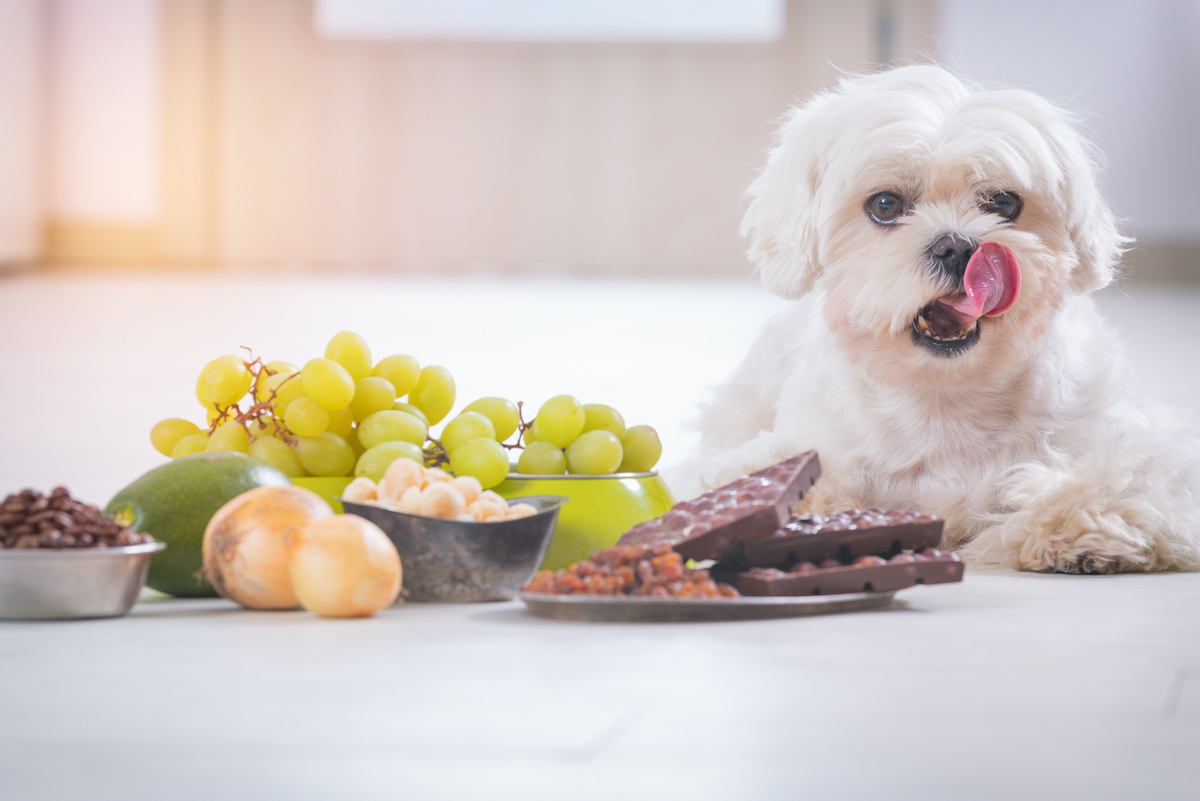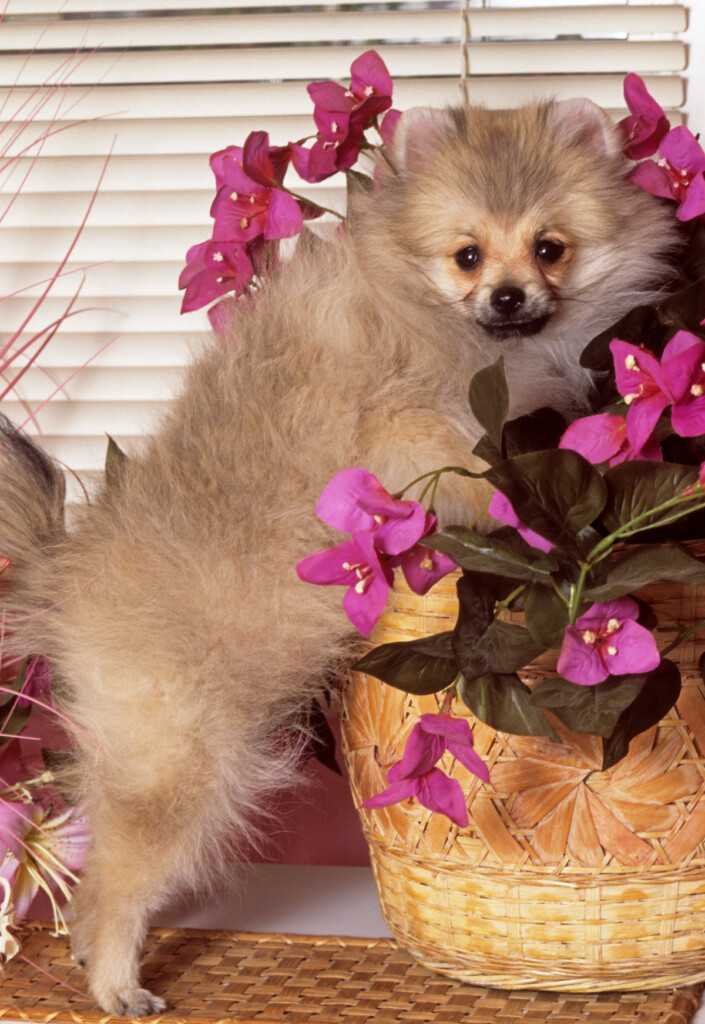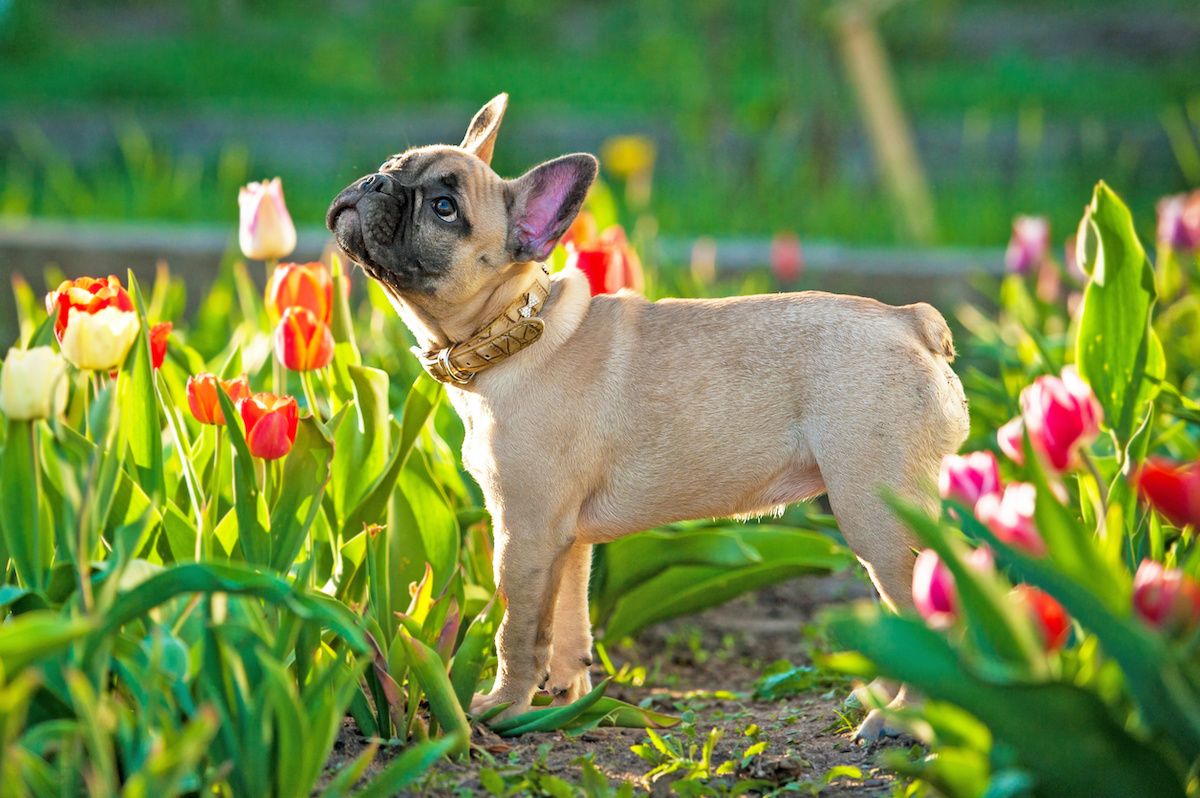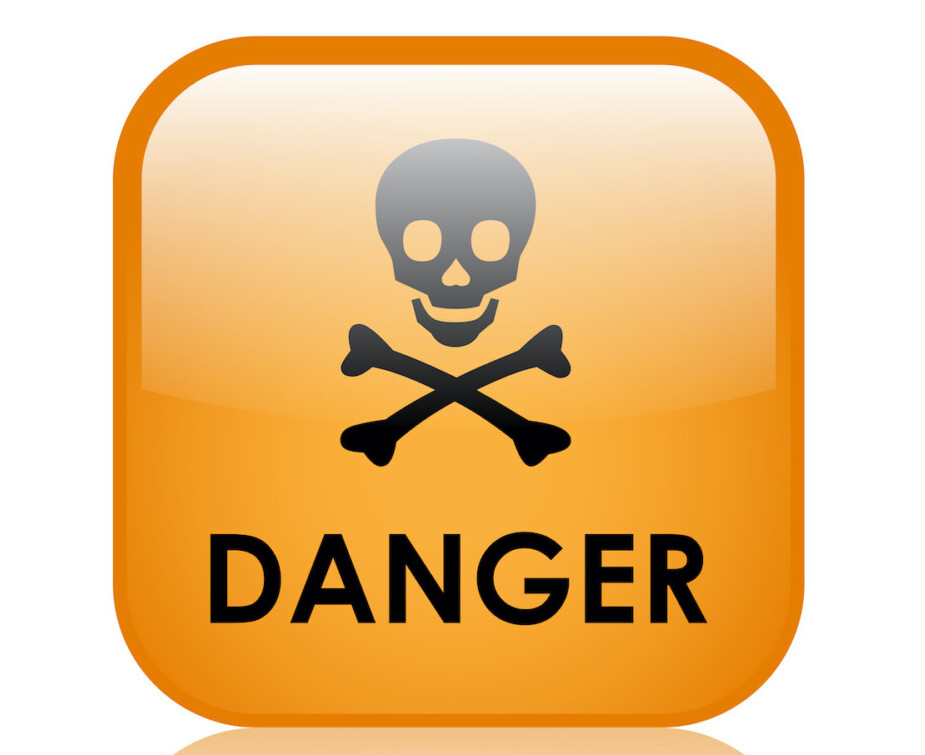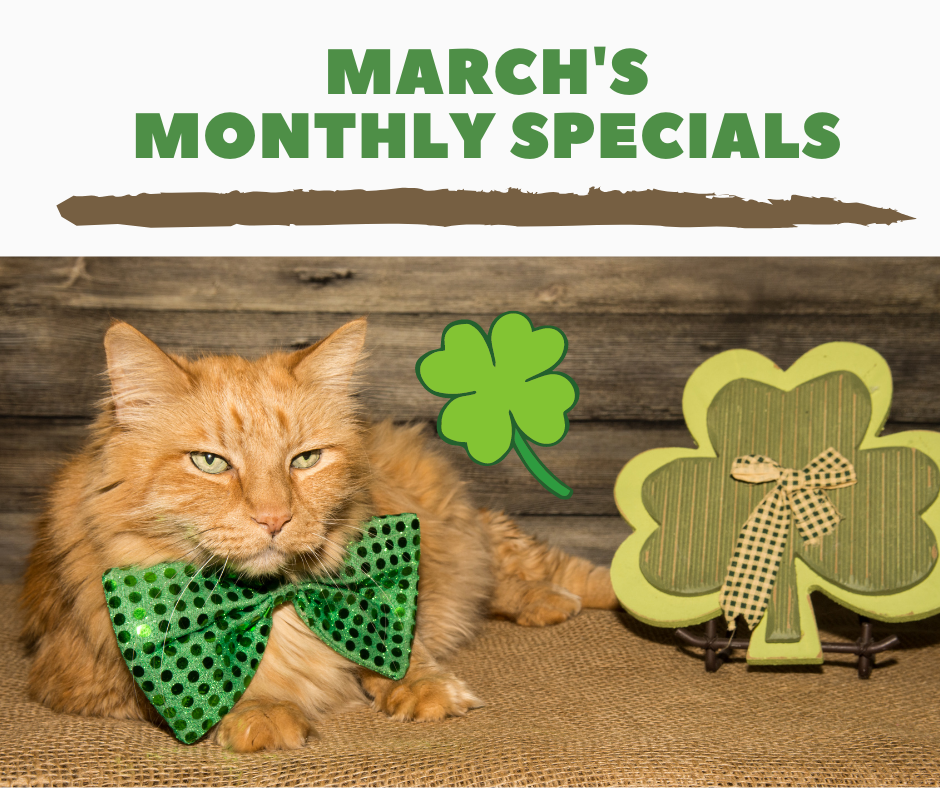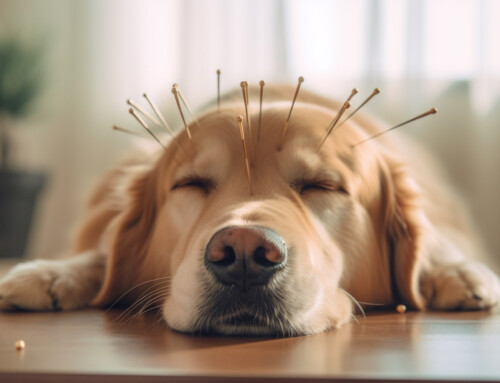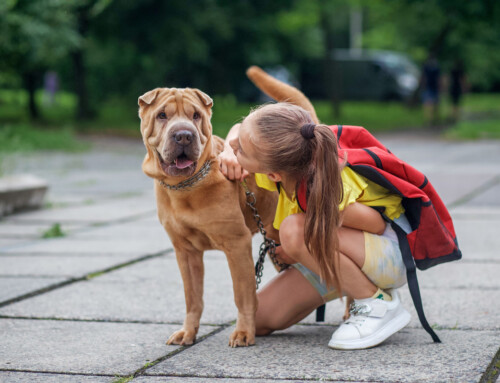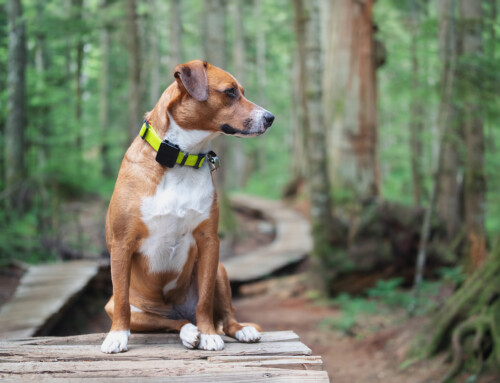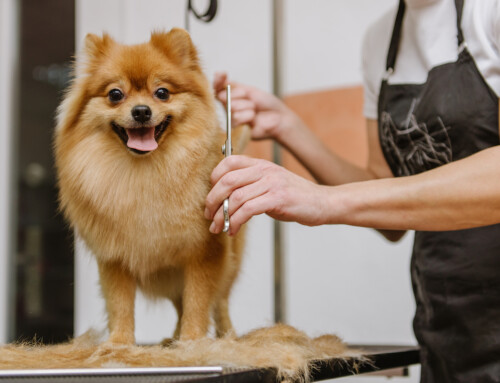When was the last time you thought about poison prevention for your pet? If it hasn’t crossed your mind, then now is the perfect time to learn about the poison hazards that exist for pets living in your Georgia home. From indoor and outdoor poison hazards to the contents of a pet poisoning emergency kit, we’ve got the must-know info to help you be aware and be prepared during National Pet Poison Prevention Awareness Month.
Pet Poisoning Prevention
Curious cats and dogs can get themselves into some very dangerous materials both inside and outside the house. Use the following lists to identify the poison risks around your home. But, first let us introduce you to the all important steps that help you protect your pet from a poisoning tragedy. If you have questions about any of this information or potential poison hazards around your property, get in touch with our friendly Stone Mountain veterinary staff.
In the Event of a PET POISONING EMERGENCY!
If you suspect your cat or dog has ingested a poison or been bit by a poisonous animal, call a local Stone Mountain, GA emergency veterinarian right away. Also, notify your pet’s regular vet. You should keep those phone numbers posted on your fridge along with the 24-hour ASPCA Animal Poison Control Center (888-426-4435), the Pet Poison Hotline (855-764-7661), and/or the GA Poison Control Center.
Pet Poisoning Emergency Kit Contents
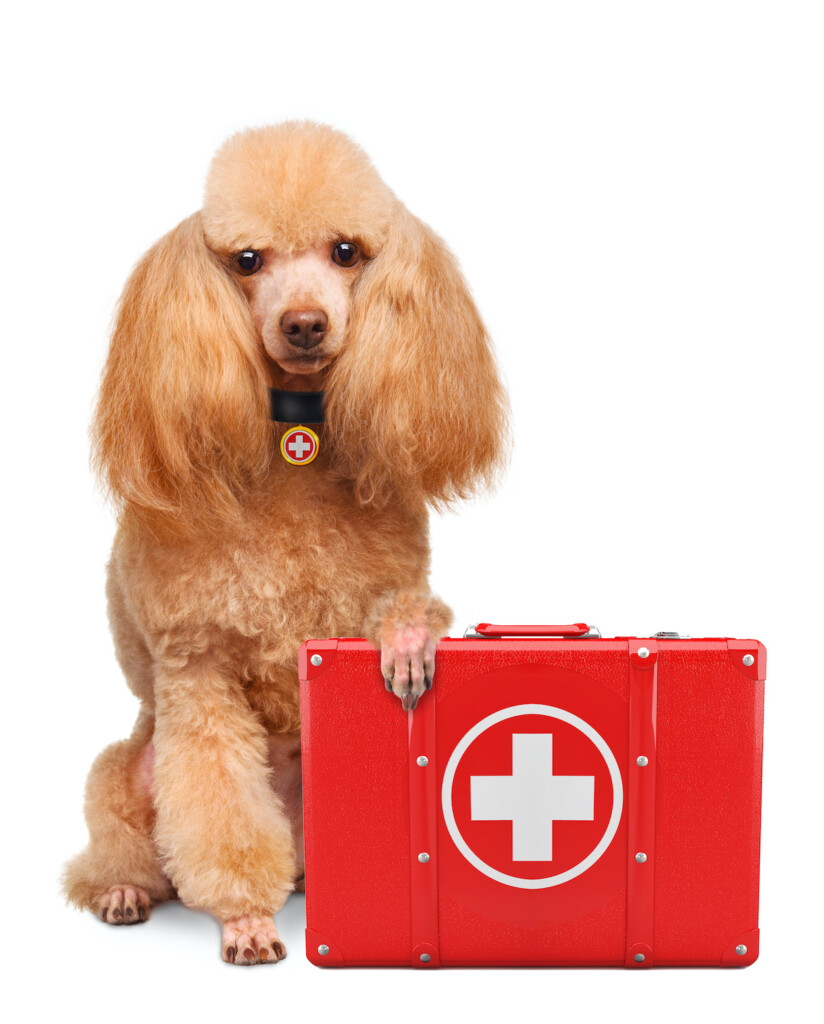 You can never be too careful with your pets’ health; more importantly, after-the-fact, you can never be sorry enough for not being prepared for an emergency that places your dog or cat’s life at risk. Every pet owner should have a poisoning emergency kit that contains the following items:
You can never be too careful with your pets’ health; more importantly, after-the-fact, you can never be sorry enough for not being prepared for an emergency that places your dog or cat’s life at risk. Every pet owner should have a poisoning emergency kit that contains the following items:
Pet Information Notecard or Notebook
- Your veterinarian clinic name, address, phone number, website, directions to the office
- The nearest emergency-veterinary clinic contact information and directions to the office
- The number for Pet Poison Helpline: 1-855-764-7661 and local poison control office
- Microchip ID number and company phone number, if applicable
- Your dog’s name, breed, age
- Recent health record: vaccine record, proof of rabies vaccination, general health
- List of temporary evacuation centers/shelters, which are pet friendly (for other emergencies)
First Aid Supplies
- Extra leash and harness
- A pair of nylon panyhose in case you need to place around the muzzle to prevent biting. Only use this if the pet is not vomiting, coughing, or showing signs of respiratory distress.
- Large towel/blanket
- Alcohol wipes
- Bandages: absorbent gauze, adhesive tape, gauze rolls, sterile non-stick gauze pads, splints and tongue depressors.
- Corn syrup/table syrup (~1/8 cup to be used in case of hypoglycemia)
- Diphenhydramine (e.g., Benadryl®) 25 mg tablets or liquid 12.5 mg/tsp (5mL) concentration (with NO other ingredients)
- Ear-cleaning solution
- Hydrogen peroxide 3% (within the expiration date) for inducing vomiting in dogs. Used only with dogs, NEVER with cats or animals with labored breathing. Never induce vomiting until you are sure it is appropriate and safe for the circumstance and species of animal.
- Instant Ice packs and small hand towel to wrap around pack
- Liquid hand dishwashing detergent (e.g., Dawn) without a bleach additive
- Nail clippers and styptic powder or pencil
- Oral dosing syringe, bulb syringe or turkey baster (for administering medication)
- Penlight or flashlight
- Rectal thermometer and lubricant
- Rubber gloves and/or Latex-free exam gloves
- Saline eye wash/rinse
- Scissors (with blunt ends)
- Tablespoon/teaspoon set (to calculate the appropriate amount of hydrogen peroxide to give)
- Triple antibiotic ointment (with NO other combination ingredients – NEVER used with CATS!)
- Food for your pet in case it is needed once your pet is in medical care
To learn more about Pet Poisoning Kit and Emergency First Aid, check out the videos from the ASPCA.
Giving the Wrong Treatment Could Kill Your Pet
Always, always call poison control before you administer emergency first aid for a poisoning.
Never initiate first aid or give your pet an over-the-counter human medication without speaking to a veterinary professional. If you have any questions regarding the veterinary toxicology first aid kit contents listed above, please call Pet Poison Helpline or contact your local vet.
Home Remedies for Pet Poisoning: Don’t Risk It!
Unless you have been specifically instructed by a knowledgeable, holistic veterinarian to use a home remedy or alternative treatment for poisoning, DO NOT give your pet anything that is not from a reliable, validated source. Doing so could further enganger, or even kill, your cat or dog. At Main Street Veterinarians of Stone Mountain, Dr. Moorehead has extensive training beyond traditional veterinary medicine.
Hidden Pet Poison Hazards Around Your Home
Most households contain hidden poison hazards that put a pet’s life in danger. These hazards exist in medicine cabinets, purses and backpacks, garages, under sink cabinets, where you store dog food, and even in your garden/backyard. The best resource for information, including a comprehensive list of items that are dangerous to pets, is the Pet Poison Helpline website and their mobile app, which every pet owner should have on their device. They also have many videos and a room-by-room breakdown of the pet hazards hidden around your home. Below is a list of just a few of the surprising hazards you might not be aware of:
Kitchen: Foods Poisonous to Pets
- Chocolate
- Caffeine
- Chewing gum containing xylitol
- Onions, Garlic, Leeks, Shallots and other plants in this family
- Macadamia Nuts
- Table Salt
Bathroom, Kitchen & Living Room Hazards for Pets
- Medications including Tylenol and Advil
- Batteries
- Cleaning Supplies
- Smoking products including e-cigarettes
- Check your house plants! Here is a list of household plants poisonous to pets.
Garage & Utility Room Pet Hazards
- Laundry Detergent
- Batteries
- Pesticide
- Hericide
- Insecticide
- Fertilizer
- Antifreeze and other automotive agents
- Please note, there are many organic gardening agents. Organic does not mean safe for your pet.
Garden Plants Poisonous to Pets
- Azalea
- Daffodil
- Various species of lilies
- Lily of the Valley
- Foxglove
- Mountain Laurel
- Oleander
- Tulip Bulbs
- Compost
- Marijuana
- Mushrooms
There are many other garden elements that present poison hazards to your pets. The more your know, the better prepared you are to prevent a pet poisoning or to properly respond to one. We encourage you to review more detailed information on these and other garden elements poisonous to pets.
Georgia Snakes: Poisonous to Your Pets
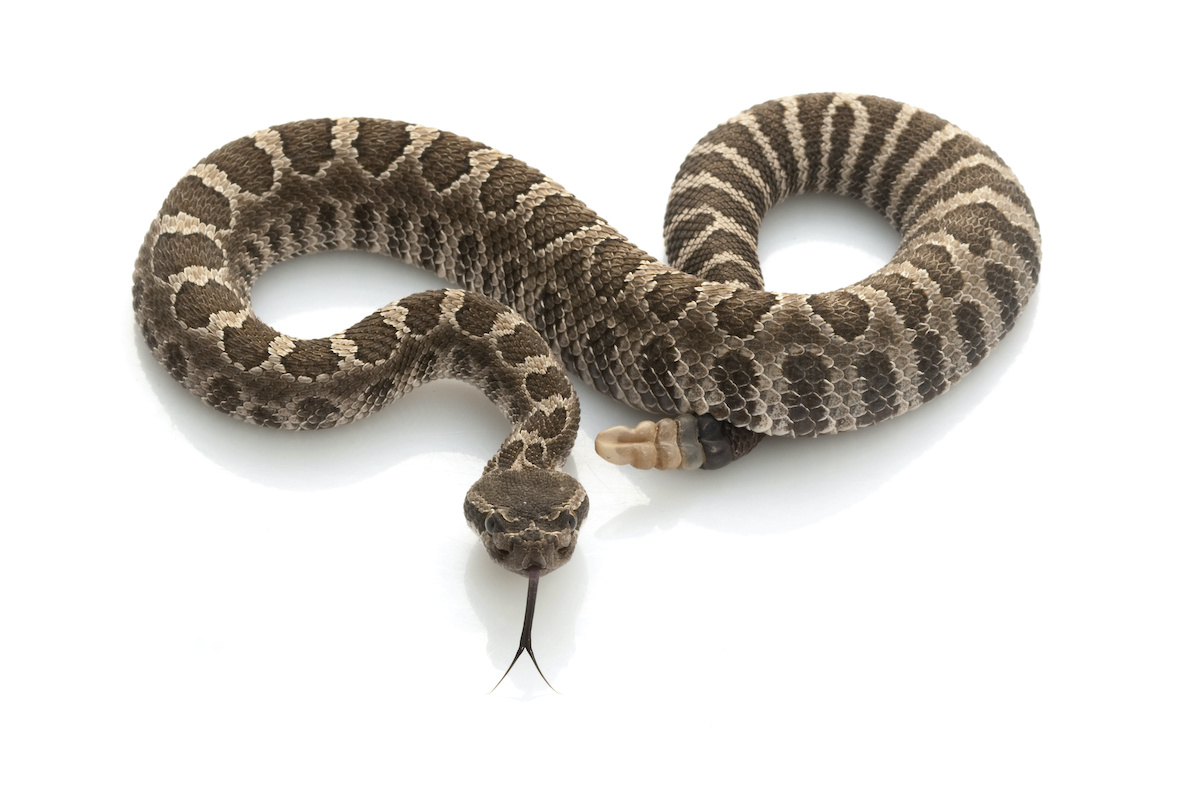 Another hidden danger to your pets that lurks in your garden is the snake population in Georgia. Several varieties of poisonous snakes are found in our beautiful state including:
Another hidden danger to your pets that lurks in your garden is the snake population in Georgia. Several varieties of poisonous snakes are found in our beautiful state including:
- Copperhead.
- Pigmy Rattlesnake.
- Timber Rattlesnake.
- Cottonmouth.
- Eastern Diamondback Rattlesnake.
- Eastern Coral Snake
If you live near wooded areas, lakes, or streams then you are more likely to find snakes slithering through your yard, garden, or basement of your home.
Poison Prevention Videos from Dog Time Magazine: For a quick rundown of many expected and unexpected sources of poison and other hazards around your home, check out the special feature from Dog Time.
Awareness of the poison hazards around your home is just the first step. Take action by making a thorough trip through your property by noting what needs to be moved, where storage “security” needs to be improved to prevent curious pets from gaining access, and have your pet poisoning emergency kit at-the-ready. Additionally, make sure that every member of your family who is old enough knows where to find the kit and how to use it. Many state Humane Society offices as well as local veterinarians will hold events pertaining to Pet Poison Prevention Awareness Month this March. Contact your vet or local Humane Society office for details.
Trust Your Pet’s Health to Stone Mountain’s Trusted Veterinarian
MainStreet Veterinarians practices both conventional and alternative animal healthcare for pets of all kinds in Stone Mountain, GA. We have found pets whose health was not recovering from standard treatment to benefit from holistic animal care. In addition to conventional treatment, including vaccinations, our holistic specializations include Veterinary Orthopedic Manipulation (pet chiropractic), nutritional interventions, and Nutrition Response Testing (NRT). At the office, we carry a wide array of holistic foods and nutritional supplements. Learn more about your pet’s health in this video with Dr. Moorehead.
Every month we offer specials on products and/or services. Call us today for more information on this month’s specials and to schedule an appointment, 770-498-4620.
- $80.00 OFF Spay or Neuter With Blood Profile
- $6.00 OFF Full Groom
- Free Exam With Full Vaccination Set
Follow this link to print your coupon to present at the time of your appointment. Offers are valid for appointments in the office, Monday through Friday.
Resources
American College of Veterinary Science
Pet Poison Helpline Emergency First Aid Kit for Pets
“Protect Your Pet from Household Hazards.” Ohio State University School of Veterinary Medicine

